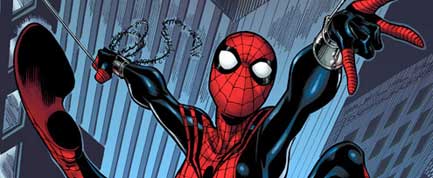Spider Bite Cures Paralyzed Man: Miracle or Bad Reporting?

It sounds like something out of the pages of The Weekly World News, right next to an alien abduction story: Paralyzed California man bit by brown recluse spider walks again. Only it was reported for real last week on CNN, ABC, NBC and CBS.
Yes, a miracle — a miracle this could make the evening news, for this was a phenomenally poorly reported story bereft of the simplest of fact-checking. Of the three basic facts reported by these apparently professional journalists — paralyzed man, brown recluse spider, and walking — two are surely false.
Yet more than just another example of lousy broadcast journalism, such stories bring false hopes and even danger to those desperate enough to experiment with venom to cure their paralysis.
Talk to a doctor
Here's the full story as sort-of reported: A man named David Blancarte of either Modesto or Manteca, Calif. (reports vary), who was either paralyzed or confined to a wheelchair (reports vary) after a motorcycle accident either 20 or 21 years ago (reports vary), was bitten by a brown recluse spider two years ago and sought treatment in a hospital. An unnamed nurse there noticed muscle spasms; concluded his nerves were just "asleep"; ordered tests; got him to rehab; and got him walking again.
"Extraordinary claims require extraordinary evidence," the late astronomer Carl Sagan liked to say. None of the news reports, however, included a doctor or scientist commenting on the possibility of a spider curing paralysis, let alone confirming Blancarte's recollection of the medical facts.
I'm not saying this guy wasn't in a bad way for 20-some years. What likely happened was that Blancarte's legs weren't completely paralyzed and, in fact, were slowly healing. A bite of some sort — more on this below — got him to a hospital, where medical professionals realized that there was nerve and muscle activity unrelated to the bite. Through physical therapy he slowly regained the ability to walk, albeit with a walker.
Sign up for the Live Science daily newsletter now
Get the world’s most fascinating discoveries delivered straight to your inbox.
Good for him. What a great stroke of luck. But that's a far cry from headlines such as "NorCal Paraplegic Cured by Spider Bite."
Talk to your local arachnologists
There's a touch of Spider-Man in this tale, with the venom of a spider imparting superhuman powers. But the journalists' spider senses weren't tingling enough to understand that there are no brown recluse spiders in California. These tiny spiders — no bigger than a quarter, legs and all — are rarely seen west of the Rockies, inhabiting the Midwest from Texas up to Canada.
Chances are, it wasn't even a spider that bit Blancarte. As reported in a 2005 article in the New England Journal of Medicine, 80 percent of patients seeking medical care for a spider bite were actually bitten by something far more benign, such as a tick, flea or beetle.
The brown recluse spider, in particular, gets a bum rap. As the name implies, these spiders aren't aggressive and don't like to be around anyone. In the states that do have lots of them, reports of bites are rare or non-existent. Yet in states that don't have them, such as California or Colorado, reports of bites number in the hundreds, according to a study in the journal Toxicon led by Rick Vetter of University of California, Riverside, who seems to be on a crusade to stop myths about spider bites.
Alas, there's a new twist to this strange story. Blancarte can walk but apparently he can't run from the law. With his sudden fame alerting police to his whereabouts, Blancarte was arrested last week on a contempt-of-court charge stemming from a domestic violence case — that is if you believe the news reports.
- More Bad Medicine
- Bad Science: Myths, Legends and Downright Crazy Stuff
- Most Popular Myths in Science
Christopher Wanjek is the author of the books "Bad Medicine" and "Food At Work." His column, Bad Medicine, appears each Tuesday on LiveScience.

Christopher Wanjek is a Live Science contributor and a health and science writer. He is the author of three science books: Spacefarers (2020), Food at Work (2005) and Bad Medicine (2003). His "Food at Work" book and project, concerning workers' health, safety and productivity, was commissioned by the U.N.'s International Labor Organization. For Live Science, Christopher covers public health, nutrition and biology, and he has written extensively for The Washington Post and Sky & Telescope among others, as well as for the NASA Goddard Space Flight Center, where he was a senior writer. Christopher holds a Master of Health degree from Harvard School of Public Health and a degree in journalism from Temple University.









